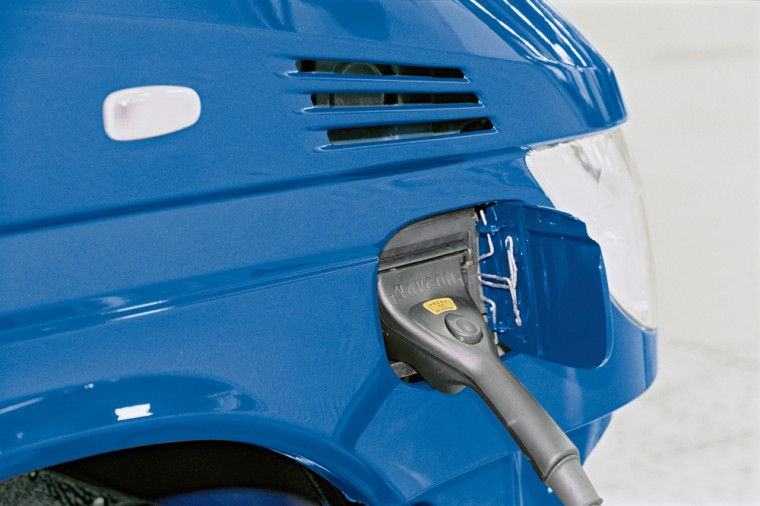DaimlerChrysler AG said Tuesday it would expand its fleet of commercial vans capable of running on battery power alone over the course of the next year with the roll-out of its redesigned Dodge Sprinter.
DaimlerChrysler said it would produce a "test-fleet" of up to 20 plug-in hybrid versions of its 2007 Dodge Sprinter in order to evaluate the performance of the electric vehicles in real-world driving conditions.
Plug-in hybrids, an alternative to traditional combustion engines and strongly favored by some environmental advocates, can run on battery power alone for short trips and can be recharged with a standard electrical outlet.
DaimlerChrysler said it would combine the rechargeable battery on the Dodge Sprinter with a diesel engine for a bigger gain in fuel economy, saying that would be the first real-world test of that technology.
Proponents see plug-in hybrids as a way to reduce greenhouse gas emissions and the U.S. reliance on imported oil.
DaimlerChrysler's announcement came on the same day that President Bush was scheduled to visit a Washington-area post office to view commercial vehicles that run on gas alternatives, including models from DaimlerChrysler and rival General Motors Corp.
DaimlerChrysler said some of its new Dodge Sprinters would be equipped with next-generation lithium ion batteries, a power storage technology that promises sharply improved performance over the nickel-metal hydride batteries used in the current crop of hybrids.
DaimlerChrysler's Chrysler Group already has four plug-in hybrid delivery vans on the road with test customers based on the previous version of the Dodge Sprinter.
The current version of the Dodge Sprinter plug-in has a battery-powered range of 20 miles, the company said.
"For plug-in hybrid technology to move forward, a dramatic leap in battery technology is necessary," Chrysler Group vice president Mark Chernoby said. "The energy storage systems in the Dodge Sprinter (plug-in hybrid) concept fleet will provide valuable field experience on the possibilities with lithium-ion batteries."
GM is targeting production in 2010 of a vehicle based on the Chevrolet Volt concept that can be configured to run on electricity, ethanol, biodiesel or gasoline.
Toyota Motor Corp , which makes the popular Prius and leads the market in hybrid vehicles, has also said it is developing a plug-in vehicle although it has not specified a projected timeline for production.
Auto industry officials say the biggest hurdles to producing mass-market plug-in hybrids remain the cost and safety of the lithium-ion battery packs that they require.
Lithium-ion batteries have been used in a range of consumer electronics, including laptop computers, but are only now being adapted for use in vehicles.
